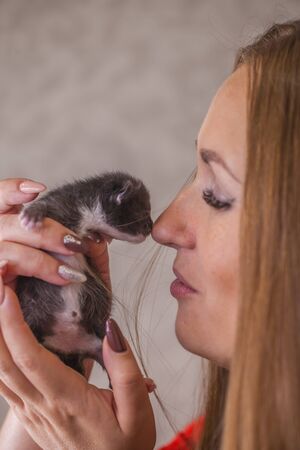Introduction to Exotic Mammals in the UK
In recent years, exotic mammals such as hedgehogs and sugar gliders have gained remarkable popularity as pets among British households. Their charming appearance, distinctive behaviours, and compact size offer a unique alternative to traditional pets like cats and dogs. However, before considering these fascinating creatures as companions, it is essential to understand both their legal status and the cultural attitudes towards exotic pet ownership in the UK.
The Unique Appeal of Hedgehogs and Sugar Gliders
Hedgehogs, particularly the African Pygmy Hedgehog, are admired for their docile nature and low-maintenance care requirements. Sugar gliders, on the other hand, attract attention with their sociable personalities and ability to glide between surfaces. Both species require specialised care but reward owners with engaging interactions and enriching experiences.
Legal Status in the UK
When it comes to keeping exotic mammals, legislation is a key consideration. The table below outlines the current legal status for hedgehogs and sugar gliders as pets within England, Scotland, Wales, and Northern Ireland:
| Species | England | Scotland | Wales | Northern Ireland |
|---|---|---|---|---|
| African Pygmy Hedgehog | Legal (with welfare compliance) | Legal (with welfare compliance) | Legal (with welfare compliance) | Legal (with welfare compliance) |
| Sugar Glider | Legal (no licence required) | Legal (no licence required) | Legal (no licence required) | Legal (no licence required) |
Cultural Popularity and Considerations
The appeal of these animals continues to grow across Britain, with many enthusiasts forming clubs and online communities dedicated to sharing best practices. It is important to note that responsible ownership—including sourcing from reputable breeders and adhering to welfare standards—is highly encouraged by both local councils and animal welfare organisations.
Legal Requirements and Ethical Considerations
Before welcoming hedgehogs or sugar gliders into your home, its crucial to understand the legal framework governing exotic mammals in the UK. The law is designed to protect both animal welfare and public safety, ensuring that only responsible owners keep these unique pets.
UK Legislation for Exotic Mammals
Exotic pet ownership is regulated by several acts and statutory instruments. Two key pieces of legislation include:
| Legislation | Main Focus | Implication for Owners |
|---|---|---|
| Animal Welfare Act 2006 | Sets minimum standards for the care of all animals, including exotics. | Owners must meet animals’ needs for a suitable environment, diet, and health care. |
| Dangerous Wild Animals Act 1976 (as amended) | Regulates species considered dangerous; most commonly applies to large carnivores or primates. | Neither hedgehogs nor sugar gliders are listed, but always check local authority updates. |
Licensing and Local Authority Regulations
Some councils may require licensing for keeping certain exotic mammals, particularly if breeding or selling is involved. Always consult your local authority before acquiring an exotic pet to confirm if additional permissions or inspections are necessary. Breeding or commercial sales will likely necessitate a licence under the Animal Welfare (Licensing of Activities Involving Animals) (England) Regulations 2018.
Welfare Standards: What You Must Provide
- Shelter and Environment: Spacious enclosures with appropriate temperature, humidity, and enrichment.
- Diets: Species-specific nutrition tailored to the needs of hedgehogs and sugar gliders.
- Healthcare: Access to an exotic mammal veterinarian and regular health checks.
- Social Needs: Especially important for sugar gliders, which are highly social animals requiring companionship.
Ethical Responsibilities of Pet Ownership
Caring for hedgehogs or sugar gliders demands more than just meeting legal requirements; it involves an ethical commitment. Prospective owners should consider:
- Lifespan Commitment: Hedgehogs can live up to 6 years, while sugar gliders may reach 12-15 years. Are you prepared for this long-term responsibility?
- Sourcing Responsibly: Only purchase from reputable breeders who prioritise animal welfare. Avoid supporting the illegal wildlife trade.
- No Release into the Wild: Releasing non-native species into the UK environment is not only unethical but also illegal due to ecological risks.
If you have doubts about your ability to meet these requirements, reconsider whether an exotic mammal is right for your household. By staying informed and acting responsibly, you help ensure high standards of welfare and set a positive example within the UKs exotic pet community.
![]()
3. Setting Up the Ideal Habitat
Creating a safe and stimulating environment is essential for the wellbeing of hedgehogs and sugar gliders. In the UK, specific considerations such as temperature, humidity, and space are vital due to the climate and the typical structure of British homes.
Temperature & Humidity Control
Both hedgehogs and sugar gliders are sensitive to cold and damp conditions, which are common in the UK. Ensure their habitat maintains a stable temperature and appropriate humidity levels. Use ceramic heat emitters or heat pads (never direct hot lamps) and monitor with reliable thermometers and hygrometers.
| Species | Ideal Temperature | Ideal Humidity |
|---|---|---|
| Hedgehog | 22-25°C | 40-60% |
| Sugar Glider | 24-27°C | 50-60% |
Enclosure Selection & Setup
For Hedgehogs
- Cage Size: Minimum 100x50cm floor space; more is better.
- Bedding: Dust-extracted wood shavings, paper-based bedding, or fleece liners. Avoid cedar or pine.
- Hiding Spots: Provide igloos, tunnels, or hide boxes for security.
- Enrichment: Add exercise wheels (28cm diameter minimum), tunnels, and chew toys.
- Litter Tray: Place away from sleeping area for easier cleaning.
For Sugar Gliders
- Cage Size: Minimum 100x60x150cm; vertical space is critical for climbing.
- Bedding/Substrate: Paper-based substrate or fleece pouches.
- Nesting Pouches: Install soft hanging pouches high in the cage for sleeping.
- Toys & Climbing Structures: Branches (safe wood), ropes, swings, and exercise wheels designed for gliders.
- Dishes & Water Bottles: Securely attached to avoid spills.
Adapting to British Homes
The UKs cooler temperatures mean you may need to supplement heating especially during autumn and winter. Position cages away from draughty windows, radiators, or direct sunlight. Ensure all electrical heating elements are pet-safe and checked regularly. If using a conservatory or shed, insulate well to prevent dramatic temperature shifts. Consider using room thermometers as backup monitoring tools.
Cage Placement & Safety Tips
- Avoid kitchens and busy corridors where noise and fumes can stress your pets.
- Keeps cages off the ground to reduce drafts and make cleaning easier.
- If you have other pets (cats/dogs), secure cages with locks and place them out of reach to prevent accidents or stress.
- Regularly inspect enclosures for wear, sharp edges, or escaped bedding that might create hazards in your home environment.
Summary Table: Key Habitat Requirements
| Hedgehog | Sugar Glider | |
|---|---|---|
| Main Enclosure Type | Large single-level cage/tank with lid | Tall wire cage with bar spacing <1.2cm |
| Bedding/Substrate | Papers/fleece/shavings (no pine/cedar) | Papers/fleece nesting pouches |
| Main Enrichment Items | Wheel, tunnels, hideouts, chew toys | Trees branches, ropes, pouches, glider-safe wheel |
| Shelter/Nest Area | Hide box/igloo/tunnel on floor | Pouch/hammock high up in cage |
| Cage Cleaning Frequency | Bedding changed 1–2x/week; spot clean daily | Pouches weekly; spot clean daily; substrate 1–2x/week |
| Location Advice (UK) | Away from drafts/radiators/direct sun; insulated if near outside wall/conservatory | Away from loud areas/predators; maintain stable temp/humidity indoors |
This careful attention to habitat ensures your hedgehog or sugar glider thrives in your UK home—healthy, active, and stress-free.
4. Nutrition and Feeding Practices
Proper nutrition is fundamental to the health and longevity of both hedgehogs and sugar gliders. As exotic mammals, their dietary needs differ significantly from those of common pets in the UK. Below, you’ll find practical advice tailored to sourcing, preparing, and offering a balanced diet using readily available UK products.
Hedgehog Diet: What to Feed in the UK
Hedgehogs are insectivores by nature but can thrive on a high-protein, low-fat diet that mimics their wild intake. In the UK, you can source suitable foods from supermarkets, pet shops, or online suppliers.
| Food Item | UK Availability | Preparation & Notes |
|---|---|---|
| High-quality cat biscuits | Widely available (look for poultry-based, grain-free options) | Offer as the staple; avoid fish-based flavours |
| Insects (mealworms, crickets) | Pet shops, online retailers | Feed in moderation; live or dried forms both acceptable |
| Cooked chicken/turkey (plain) | Supermarkets, butchers | No seasoning or oil; serve in small pieces |
| Chopped vegetables & fruits (e.g., apple, carrot) | Supermarkets, grocers | Sparingly; avoid grapes, raisins, avocado, citrus fruits |
| Specialist hedgehog food | Exotic pet stores, online | Check for UK-specific brands with balanced nutrients |
Sugar Glider Diet: Sourcing and Preparation in Britain
Sugar gliders require a varied diet rich in fresh produce and protein. The main challenge is replicating their natural intake using British groceries and supplements.
| Food Item/Component | UK Source Suggestions | Preparation Tips & Frequency |
|---|---|---|
| Nectar mix (homemade or commercial) | Online suppliers (specialist glider nectar) or DIY with honey/yoghurt/egg blend | Main food base; offer daily in small amounts |
| Fresh fruit & veg (apple, pear, sweet potato) | Supermarkets, local markets | Sliced finely; rotate choices to avoid monotony; daily offering (avoid onion, garlic) |
| Insects (live mealworms/crickets) | Pet shops, reputable online sources | Treats for protein; 2–3 times per week only due to fat content |
| Boiled egg or plain cooked chicken/baby food (meat-only) | Supermarkets, baby aisle for purees | Avoid additives or spices; small quantities 1–2 times per week for protein boost |
| Calcium/vitamin supplements (powdered) | PET SHOPS/online exotic animal suppliers | Dust onto main food a few times weekly to prevent deficiencies |
Sourcing Tips for UK Keepers
- Select reputable brands: For specialist foods and supplements, choose UK-registered suppliers adhering to pet safety standards.
- Avoid toxic foods: Never offer chocolate, caffeine-containing items, nuts (especially macadamia), or any processed human snacks.
- Freshness matters: Rotate fruits and vegetables regularly and remove uneaten portions promptly to prevent spoilage and bacterial growth.
Feeding Routine & Practical Considerations
- Create a feeding schedule: Both species benefit from regular feeding times—usually evenings for sugar gliders and early evening/night for hedgehogs.
- Cater to foraging instincts: Scatter feed or use puzzle feeders to encourage natural behaviours.
- Catering during travel or vet visits: Prepare transport-safe food pouches with familiar staples to minimise stress.
A well-balanced diet using easily sourced UK ingredients is key to keeping your exotic mammals healthy and active. Always consult with an exotic pet vet about your individual animal’s dietary needs as part of responsible ownership.
5. Daily Care and Enrichment
Step-by-Step Daily Handling Routine
Proper handling is crucial for building trust and ensuring the wellbeing of both hedgehogs and sugar gliders. For hedgehogs, approach them gently, allowing them to sniff your hand first. Sugar gliders require patience; use a bonding pouch initially and handle them in a secure, quiet space. Always wash your hands before and after handling to prevent the spread of bacteria.
Daily Cleaning Checklist
| Task | Hedgehog | Sugar Glider |
|---|---|---|
| Spot Clean Cage | Remove faeces and soiled bedding daily | Remove leftover food and droppings from cage floor |
| Water Refresh | Replace with fresh water daily | Check and refill water bottle or bowl daily |
| Food Dishes | Clean food dish after every meal | Wipe fruit/nectar residues from feeding area |
| Bedding Replacement | Change bedding weekly (spot clean daily) | Change fleece liners every 2-3 days (spot clean daily) |
Playtime: Ensuring Physical and Mental Stimulation
Both hedgehogs and sugar gliders benefit from supervised playtime outside their enclosures. Set up a safe, escape-proof playpen with tunnels, wheels, and chew toys for hedgehogs. For sugar gliders, provide climbing branches, ropes, and glider-safe exercise wheels. Interact gently using treats or toys to encourage natural behaviours.
Enrichment Activities Tailored to Each Species
| Activity Type | Hedgehog Enrichment Ideas | Sugar Glider Enrichment Ideas |
|---|---|---|
| Sensory Stimulation | Introduce new scents (herbs, safe flowers), textured toys, or hide food for foraging. | Add different nesting materials, rotate toys regularly, or offer scented branches. |
| Physical Exercise | Solid-surface running wheel, tunnels, obstacle courses. | Cage-mounted climbing nets, hanging pouches, supervised gliding in safe rooms. |
| Mental Challenge | Puzzle feeders with insects or mealworms inside. | Treat-dispensing toys or hiding treats in various cage locations. |
| Social Interaction* | Short gentle handling sessions; avoid overstimulation. | Cohabitation with another glider if possible; interactive play with owner. |
*Note:
Sugar gliders are social animals and may become lonely without companionship. Hedgehogs are solitary by nature; group housing is not recommended.
A structured daily routine not only keeps your exotic mammals healthy but also strengthens the bond between you and your pets. By prioritising enrichment and consistent care tailored to their unique needs, you ensure their lives are enriched and stress-free within a UK home environment.
6. Health, Veterinary Care, and Emergency Preparedness
Ensuring the health and wellbeing of your hedgehog or sugar glider requires proactive care and access to specialist veterinary support. Exotic mammals have unique health requirements compared to more common pets, making it essential to be well-prepared and informed.
Tips for Finding Exotic Vets in the UK
Not all vets are experienced with exotic species. Seek out practices that specifically advertise exotic animal care or are listed by reputable organisations such as the British Veterinary Zoological Society (BVZS). Joining online forums or local exotic pet groups can also provide recommendations from fellow keepers. It’s wise to register with a suitable vet before an emergency arises.
How to Find a Qualified Exotic Vet
| Step | Action |
|---|---|
| 1 | Check BVZS or RCVS websites for registered exotics vets |
| 2 | Ask local breeders or rescue centres for recommendations |
| 3 | Visit the practice beforehand to assess their experience and facilities |
Recognising Signs of Illness
Early detection is critical, as hedgehogs and sugar gliders often hide symptoms until an illness is advanced. Watch for changes in behaviour, eating habits, weight loss, lethargy, discharge from eyes or nose, abnormal faeces, or difficulty breathing. Unusual aggression or withdrawal can also signal distress. If in doubt, consult your vet promptly.
Common Warning Signs
| Mammal | Signs of Illness |
|---|---|
| Hedgehog | Lack of appetite, wobbliness, crusty skin, sneezing, blood in stool |
| Sugar Glider | Lethargy, fur loss, diarrhoea, self-mutilation, breathing issues |
Routine Health Checks
Regular monitoring can prevent minor issues becoming severe. Perform weekly checks for injuries, lumps, dental problems, and overgrown nails. Record your pet’s weight and note any significant fluctuations. Annual veterinary check-ups are recommended even if your animal appears healthy.
Preparing for Common Emergencies
Create an emergency kit containing essentials: contact details for your exotic vet (including out-of-hours numbers), transport carrier, clean towels, gloves, syringes for feeding/medication, and basic wound care supplies. Know the nearest 24-hour veterinary clinic in your area. Planning ahead ensures you can respond quickly if urgent care is needed.
UK-Specific Emergency Resources:
- PDSA – For advice and emergency support: pdsa.org.uk
- BVA Find-a-Vet: bva.co.uk/vet-finder/
A combination of routine care, keen observation, and being prepared for emergencies will help ensure your hedgehog or sugar glider thrives under your care in the UK.
7. Community, Resources, and Further Support
Successfully caring for exotic mammals like hedgehogs and sugar gliders is not a journey you need to take alone. Engaging with local British communities, accessing reliable resources, and seeking ongoing support can make a significant difference in the wellbeing of your pets. Here’s how you can stay connected and find the help you need:
Connect with Local British Communities
Joining UK-based pet owner groups allows you to share experiences, get advice tailored to the British context, and even participate in local events or meet-ups. Many regions across England, Scotland, Wales, and Northern Ireland have active clubs dedicated to exotic mammals.
Trusted Breeders
Choosing a reputable breeder is crucial for the health and temperament of your hedgehog or sugar glider. Always look for breeders registered with recognised UK organisations and who follow best practice standards for animal welfare.
| Region | Breeder Name | Specialisation |
|---|---|---|
| England | The Prickly Pals | African Pygmy Hedgehogs |
| Scotland | Highland Gliders | Sugar Gliders |
| Wales | Cymru Exotics | Various Exotic Mammals |
Online Forums & Groups
The internet offers several UK-focused forums where owners can discuss care routines, share resources, and troubleshoot issues. Some popular options include:
- Exotic Pets UK Forum (www.exoticpetsuk.co.uk)
- Hedgehog Welfare Society – UK Facebook Group
- Sugar Glider Owners UK Community on Reddit
Reputable Organisations & Charities
If you need professional guidance or want to deepen your knowledge, turn to established organisations. They often offer educational materials, helplines, and rescue services.
| Organisation | Service Provided |
|---|---|
| BHS (British Hedgehog Society) | Conservation & Care Advice |
| The National Exotic Pet Rescue UK | Rescue & Rehoming Services |
Ongoing Support Tips
- Attend workshops or webinars hosted by local clubs or charities.
- Create a network with nearby owners for emergency support.
- Subscribe to newsletters from trusted organisations for updates on care practices and legislation.
Cultivating these connections will help ensure your exotic mammals thrive in their British home while giving you access to a wealth of shared knowledge and assistance whenever needed.


